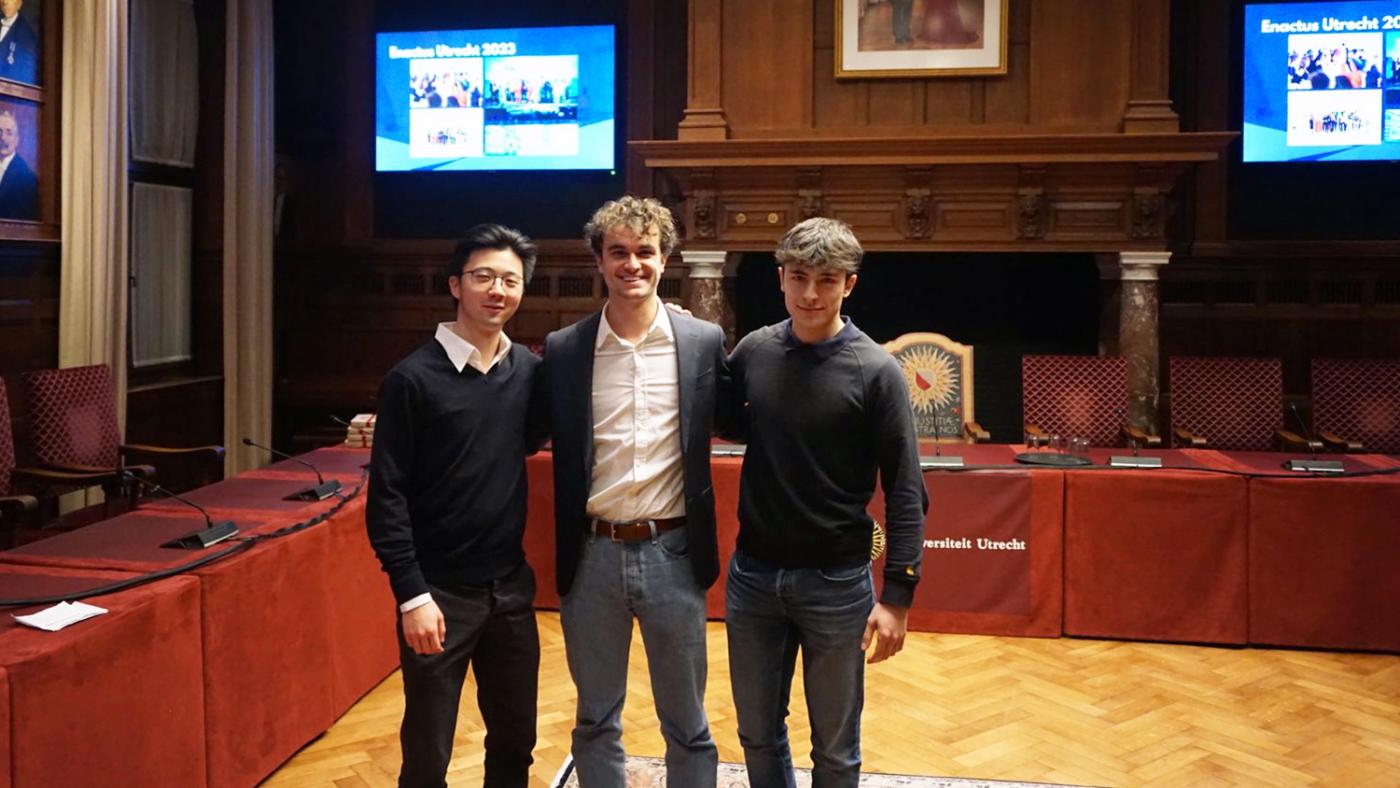Students start social enterprise
UU students making second-hand textbook platform

Despite the digitalisation of modern academia, physical textbooks are still a vital resource for students. Utrecht University’s website estimates that students spend between 65 to 85 euros per month on books and study material. Considering the tuition fee for domestic students, that’s about 30 percent of a student’s study expenses.
Students only can buy new books at their student association, not second-hand books. Andrea Boeri, a bachelorstudent Global Sustainable Science and team partner and core developer at Looplearn, knows. He has had a hard time finding second-hand books locally. “I had to look on sites like Vinted, which are mostly about clothes,” he says. In addition, on such sites one an never be sure about the book’s condition prior to buying it.
Meanwhile, Erik, bachelor student Economics and Business Economics, paid around 80 euros for a book he needed for a course due to limited online accessibility. At the end of the course, he was only able to sell it for 7 euros. “I found it a bit unfair,” he commented. “But that’s just how the market works.”

The founders of Looplearn. On the left Erik Shin and on the right Andrea Boeri, Photo: Looplearn
Local aspect
Looplearn was founded under the Utrecht branch of Enactus, an international network that fosters young entrepreneurs. With the observations mentioned above in mind, taking inspiration from the circular economy. The founders hope that a locally-managed second-hand book platform can reduce prices and carbon emissions, as printing new books or transporting them comes with an environmental cost. Books can be kept within the system for as long as they are relevant, being sold and resold between old and new students. This way, a single used book can replace many new ones. It also provides a way for students to both buy cheaper books and sell them back to recoup their investment.
The “local” aspect makes Looplearn different from existing platforms such as Bookswap and Bookmatch, which operate nationwide or even internationally. This means that the marketplace is spread between many universities, each with its own courses and references that may be different to the ones used at Utrecht University.

Case study
The problem becomes twofold when an area of study is niche. Erik argues that, because Looplearn is local, students can more readily find books that suit their needs. As an example, he mentions that students in other Dutch universities, such as those in Rotterdam and Delft, have benefitted from local second-hand book markets. In his opinion, if the model works there, it could work for Utrecht University, too. “It just hasn’t been done. Maybe nobody really sees it as a profitable business. But that is not our goal.” Erik also says that due to Looplearn’s non-profit nature, they can charge lower fees to sustain their operations than other platforms.
Erik recollects their case study—a “trial run” of their business model—done in two courses of the Global Sustainability Science programme in the second term of the 2023-2024 academic year. They were able to facilitate five book transactions thanks to WhatsApp group chats alone. He is certain that the model can be successful in the wider market by using a dedicated platform.
Recently, Looplearn has established a logistic partnership with UU’s Green Office for a base of operations, launched a website and social media account, and is now looking to expand university wide. Long-term, Andrea envisions creating a platform that is integrated with the university, so that every new student would know about it and check it regularly for the books they need. In his ideal world, everyone would recycle their books. “We want to make social and economic impact,” Erik summarized.
To reach this vision, the Looplearn team invites DUB readers to fill this survey. Those who complete the survey have a chance to win a 50-euro prize. The information gathered will help them plan how best to expand and reach students who need their services most. They also invite readers to check their Instagram page for more information.